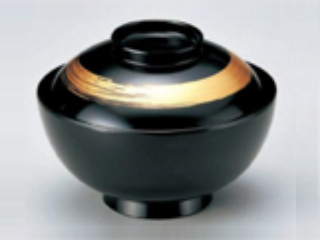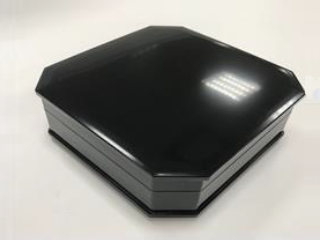Deadlines and Judging Schedules
Final tournament
Final tournament in Tokyo: January 28th and 29th, 2019
Venue:厨BO! SHIODOME
Regional qualifying tournaments
| 1st Stage: Application Screening deadline for entry |
Notice of 1st Stage results | 2nd Stage: Qualifying Tournaments |
Venue | |
|---|---|---|---|---|
| Participants of European qualifying tournaments |
Application Screening deadline for entry: August 15th | Notice of 1st Stage results: August 30th | Paris: September 13th |
Venue: Le Cordon Bleu Paris |
| Participants of US qualifying tournaments |
Application Screening deadline for entry: August 23th | Notice of 1st Stage results: September 7th | New York: September 21st |
Venue: Institute of Culinary Education New York Campus |
| Los Angeles: September 24th |
Venue: Institute of Culinary Education Los Angeles Campus | |||
| Participants of Asia region 1 qualifying tournament |
Application Screening deadline for entry: October 19th | Notice of 1st Stage results: November 5th | Bangkok: November 20th |
Venue: Kasetsart University |
| Participants of Asia region 2 qualifying tournament |
Application Screening deadline for entry: November 5th | Notice of 1st Stage results: November 21st | Osaka: December 6th |
Venue: hu+gMUSEUM |
- * Travel and hotel expenses for qualifying tournaments are to be paid for by the contestant.
- * Travel and hotel expenses for the final tournament will be covered by the contest organizing committee.
- * There is no participation fee.

2nd Stage: Qualifying Tournament Details
Contestants passing the application screening will compete in a qualifying tournament in the following:
For more details on the 1st Stage: Application Screening, please check the HOW TO APPLY page.
PARTICIPER À UN CONCOURS
TÉLÉCHARGER UNE BROCHURE (PDF)วิธีการสมัคร
ใบปลิว(PDF)Assignments
| 1. Test of cooking technique (basic knife skills) 30 minutes | Basic knife skills One 15 cm long daikon radish Techniques tested: ・Daikon katsura muki (Cut the daikon in half, do katsura muki, create 30cm long peel with no breaks) ・Daikon ken (Make ken for roughly five people) ・Daikon wagiri, shikishi giri, tanzaku giri (using the remainder of the daikon) |
|---|---|
| 2. Nimonowan (for five people) 90 minutes | Contestants will be asked to cook the recipe they have submitted for the application screening. The soup must use dashi made from kombu kelp and bonito flakes |
Judging
Judges will evaluate the following.
- Test of Cooking Technique
Judges will evaluate: knife movements, cleanness of the cuts, speed, and after the daikon has been cut, the accuracy of the shape as well as aesthetics. - Nimonowan
Judges will evaluate: the balance between the amount of food, the size of the bowl, and the ingredients’ color and size, and whether the dish as a whole looks appetizing and easy to eat. They will also evaluate the amount and flavor of the dashi, to check whether the contestant has accurate knowledge of and technique to make dashi.
Rules and Requirements
- Please bring your own white chef coat, apron, hat, and knives (usuba, sashimi, and deba).
- Ingredients necessary for “1. Test of Cooking Technique” will be provided by the organizing committee.
- Contestants will be asked to bring the ingredients necessary to make “2. Nimonowan” for five people.
Ingredients will be inspected by judges before the test begins. - Please follow the instructions of the judges as you perform the tests.
- Travel and hotel expenses for qualifying tournaments are to be paid for by the contestants.
3rd Stage: Final Tournament Details
A total of six contestants will be invited to the final tournament in Tokyo – five contestants that finished in first place in the regional qualifying tournaments, and one contestant that scored highest among those that finished second in the qualifiers.
These six contestants will be notified of the final tournament assignments (one themed assignment, one free assignment) in December. They will be asked to submit a recipe and photo (of one serving) for the free assignment only, within two weeks of this notification. The container to be used will be provided at the time of notification.
- * Contestants that do not submit recipes and photos by the due date will be disqualified, and runners-up in those qualifying tournaments will be invited to the final.
Day 1:
Themed Assignment (Cooking time: 90 minutes)
Using ingredients provided, contestants will create a specific nimonowan for six people that reflect both the predetermined dish theme and their own individuality.
This year’s theme and menu will be announced on a later date.

Last year’s dish theme: New Year’s Nimonowan
Menu: Usu kudzu jitate (mildly kudzu-thickened broth), Hamaguri shinjo (hamaguri clam dumpling), Red and white root crops (carrot and daikon), Shungiku, Matsuba yuzu (pine-needle style yuzu peel)
Day 2:
Free Assignment (Cooking time: 210 minutes)
Based on this year’s contest theme of IRODORI, contestants will freely exercise their imaginations to create an assortment of appetizers (more than five different dishes, arranged in a fuchidaka container) for six people.

- * Contestants will be asked to prepare one set of at least five dishes, following the format of Japanese cuisine and incorporate the concept of “five flavors, five colors.” Contestants will choose from various types of dishes, such as nimono (simmered foods), yakimono (grilled foods), agemono (deep-fried foods), aemono (marinated foods), sunomono (foods dressed with vinegar), etc., and arrange them attractively in the fuchidaka.
- * The fuchidaka will be of the following measurements:
Bottom W172mm-D172mm-H58mm
Lid W172mm-D172mm-H10mm - * Contestants will be asked to prepare enough for 6 people within the 210-minute time limit.
Judging
Day 1: Themed Assignment (Nimonowan)
Whether the season and cooking method of each ingredient is correct, the presentation of the dish (balance), whether the specifications for the dish have been followed, and whether all six servings are identical. In addition, the dashi will be judged on whether it has been extracted properly, with the appropriate seasoning added in the right amount, creating a balanced flavor overall.
Day 2: Free Assignment
Whether the balance between the container and the food inside is appropriate, and whether each ingredient is flavored appropriately. Judges will also look at whether this year’s contest theme IRODORI is reflected in the presentation of the dishes, as well as whether it expresses the beauty of Japanese cuisine.
Rules and Requirements
- Please bring your own white chef coat, apron, hat, and knives (usuba, sashimi, and deba).
- Bowls and fuchidaka containers will be provided by the organizing committee.
- Ingredients for Day 1 (themed assignment) will be provided by the organizing committee.
- On Day 2 (free assignment), contestants will be asked to present and explain their dishes (for about 5 minutes) as the judges taste them.
- Also, there will be time set aside during the two-day final tournament period for contestants to select all of their ingredients for Day 2 (excluding water, seasoning, kombu kelp, and bonito flakes, which will be provided by the contest organizing committee).